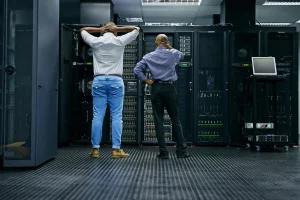This article aims to explore the correlations and intersections between the primary keyword ‘business continuity and data backup’ and the title ‘business continuity strategies for data backup in garbage management.’
By examining the context provided by the title, as well as considering the primary keyword as a specific term to target, we will delve into best practices, strategies, key considerations, and challenges associated with ensuring business continuity and data backup in the garbage management industry.
The ultimate goal is to develop a logical and coherent article concept that bridges any gaps between the title and primary keyword while maintaining an objective and analytical tone.
The Importance of Business Continuity and Data Backup in Garbage Management
The significance of business continuity data backup in the field of garbage management is a topic that warrants attention due to its potential impact on operational efficiency and risk mitigation.
In the context of garbage management, ensuring uninterrupted operations and protecting critical data are crucial for maintaining a smooth waste management process.
Best Practices for Ensuring Business Continuity and Data Backup in the Garbage Management Industry
Implementing effective business continuity and data backup practices is crucial in the garbage management industry to ensure uninterrupted operations and safeguard critical information.
The garbage management industry relies heavily on technology for various processes, such as waste collection, disposal, and recycling. Any disruption in these operations could lead to significant economic losses and environmental consequences.

Therefore, implementing robust business continuity strategies that include regular backups of critical data is essential to mitigate risks and maintain the smooth functioning of the garbage management industry.
Strategies for Implementing Effective Business Continuity and Data Backup in Garbage Management
To effectively implement business continuity and data backup strategies in the garbage management industry, it is essential to consider various factors such as the nature of operations, technological infrastructure, and potential risks.
The garbage management industry relies heavily on efficient data backup and business continuity measures to ensure uninterrupted operations. This includes implementing robust backup systems that can handle large volumes of data generated from waste collection, processing, and disposal activities.
Additionally, having redundant systems and disaster recovery plans in place can mitigate the risks associated with system failures or natural disasters.
Key Considerations for Developing a Business Continuity Plan and Data Backup Strategy in the Garbage Management Sector
Key considerations for developing a business continuity plan and data backup strategy in the garbage management sector include:
- Assessing the specific needs and requirements of the industry
- Evaluating potential risks and vulnerabilities
- Determining appropriate technologies and systems to ensure seamless operations
Understanding the unique challenges faced by the garbage management sector is crucial in order to effectively plan for disruptions or emergencies. By conducting a thorough analysis of potential risks and vulnerabilities, organizations can identify areas where data backup strategies need to be implemented to safeguard critical information and maintain operational continuity.
Overcoming Challenges and Ensuring Resilience in Business Continuity and Data Backup for Garbage Management
Overcoming challenges and ensuring resilience in continuity and data backup for garbage management necessitates a comprehensive understanding of the industry’s unique requirements. This includes proactive measures to address potential risks and vulnerabilities.
The garbage management sector faces various challenges such as system failures, natural disasters, cyber threats, and human errors that can disrupt operations and compromise data integrity.
To ensure continuity, organizations must develop robust strategies that encompass redundant backup systems, regular testing, staff training, and effective incident response protocols.
Conclusion
In conclusion, the article highlights the significance of continuity and data backup in the garbage management industry.
It provides best practices for ensuring these aspects are effectively implemented and strategies for developing a business continuity plan and data backup strategy.
The article also emphasizes the importance of overcoming challenges to ensure resilience in business continuity and data backup for garbage management.
By following these guidelines, organizations in this sector can enhance their operational efficiency and mitigate potential risks associated with data loss or disruptions in their operations.
You May Also Like:




